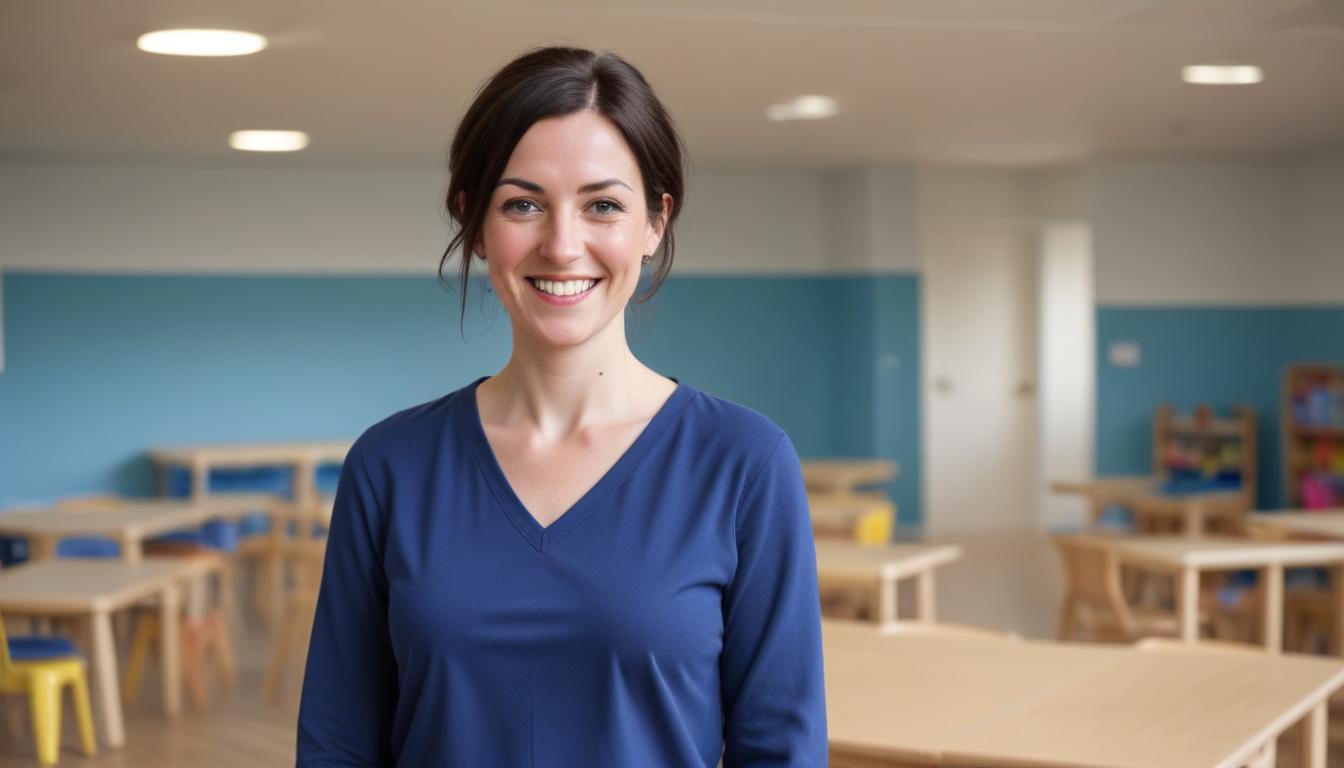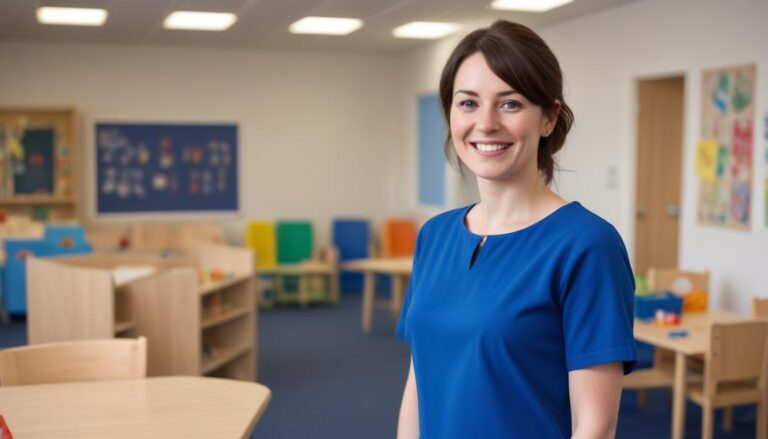
This guide will help you answer 3.1. Outline ways that adults support children in play and leisure activities.
Adults play a vital role in supporting children during play and leisure activities. These activities are fundamental for children’s development. They help nurture social skills, cognitive abilities, physical development, and emotional well-being. By actively participating in and facilitating these activities, adults can create an enriching environment for children. Let’s explore different ways in which adults can support children’s play and leisure pursuits.
Providing a Safe Environment
Safety is the foundation of successful play and leisure activities. Adults must ensure that the environment, whether indoors or outdoors, is safe for play. This involves:
- Regularly inspecting play equipment for wear and tear
- Ensuring the play area is free from hazards such as sharp objects or spills
- Supervising children to prevent accidents or conflict
- Teaching children about safe play practices to promote awareness
Creating an inclusive, safe space allows children to explore without undue risk, providing them with the confidence needed to learn and discover.
Encouraging Creativity and Imagination
Play is an excellent outlet for creativity and imagination. Adults can support this aspect of play by:
- Providing a variety of materials and resources, such as art supplies, building blocks, and costumes, to spark creativity
- Allowing children the freedom to express themselves without undue criticism
- Encouraging children to come up with their own games or stories
- Engaging in imaginative play alongside the children
This support helps children express themselves and develop original thinking and problem-solving skills.
Facilitating Social Interaction
Social development is a key component of play. Adults can enhance children’s social skills by:
- Organising group activities that require teamwork and collaboration
- Modelling positive social behaviours such as sharing and listening
- Encouraging children to include peers in their play to promote inclusivity
- Helping resolve conflicts by guiding children to find solutions
Helping children navigate social interactions is crucial for building communication skills and establishing friendships.
Promoting Physical Activity
Physical development is essential for children’s overall health. Adults can encourage physical activity through:
- Providing access to a range of play equipment, such as balls, climbing frames, or bicycles
- Engaging in active play with the children to motivate participation
- Organising games that incorporate running, jumping, or balancing
- Setting up obstacle courses or adventure trails to challenge physical skills
Physical play helps develop motor skills, coordination, and physical fitness.
Supporting Language and Communication Development
Language skills can be enhanced through play. Adults can support development in this area by:
- Conversing with children during play, expanding their vocabulary and understanding
- Introducing story-telling activities to develop narrative skills
- Encouraging children to express their thoughts and feelings
- Playing games that require communication, such as charades or role-play scenarios
Strong language skills are foundational for academic success and social interaction.
Understanding and Respecting Diversity
It’s crucial to respect and celebrate diversity in play. Adults can support this by:
- Offering a variety of culturally relevant materials and play opportunities
- Being aware of each child’s unique background and interests
- Encouraging children to explore and embrace different cultures through play
- Preventing discriminatory behaviour and promoting inclusivity
Acknowledging diversity enriches the play experience and fosters acceptance and understanding.
Encouraging Emotional Expression and Development
Play offers children a platform to understand and express their emotions. Adults can support this by:
- Being attentive and responsive to children’s emotional needs during play
- Encouraging children to discuss their feelings and experiences
- Providing opportunities for both high-energy and quiet play to cater to different emotional needs
- Helping children navigate through difficult emotions using play as a medium
Emotional development through play contributes to greater self-awareness and emotional resilience.
Providing Appropriate Resources and Materials
Having the right resources enhances children’s play experiences. Adults can support this by:
- Preparing a range of age-appropriate toys and materials
- Ensuring resources are accessible and safe for all children
- Regularly updating and rotating materials to maintain children’s interest
- Allowing children to make choices about their play materials to boost autonomy
Access to varied resources provides new learning opportunities and challenges.
Building Trust and Relationships
Adults can build trust and meaningful relationships through play by:
- Participating in activities with genuine interest and enthusiasm
- Being patient, attentive, and non-judgmental
- Encouraging children and providing positive feedback
- Respecting children’s play choices and allowing autonomy
Strong relationships create a secure base for exploration and learning.
Role Modelling Positive Behaviour
Children often look to adults as role models. By displaying positive behaviour, adults can:
- Demonstrate respectful and considerate interactions
- Show enthusiasm and curiosity during play, encouraging similar attitudes in children
- Handle conflicts calmly and effectively, providing an example for children
Positive role modelling encourages children to adopt similar behaviours in their interactions.
Adapting to Individual Needs
Each child has distinct needs and preferences. Adults can tailor their support by:
- Observing children’s interests and extending play activities accordingly
- Adjusting the level of supervision and support based on individual needs
- Offering specific resources and activities that cater to diverse abilities
- Encouraging children to express their needs and preferences
Understanding and adapting to individual needs ensures all children benefit from play.
Engaging Parents and Caregivers
Incorporating family involvement can enhance children’s play experiences. Adults can facilitate this by:
- Encouraging parents and caregivers to participate in play activities
- Sharing ideas for play and leisure activities that can be done at home
- Discussing the benefits of play with families to promote a supportive environment
- Organising family-friendly events that encourage collaborative play
Family engagement reinforces learning outside of structured environments.
Encouraging Risk-Taking and Problem-Solving
Play provides opportunities for children to take risks and solve problems. Adults can support this by:
- Allowing children to tackle challenges with minimal intervention
- Encouraging them to explore and test their limits in a safe environment
- Offering guidance and suggestions when faced with obstacles
- Encouraging reflection post-play to analyse what they’ve learned
Risk-taking and problem-solving during play enhance resilience and independence.
Monitoring and Reflecting on Play
Adults should monitor and reflect on children’s play to improve support strategies. This can involve:
- Observing play patterns to identify interests and areas for development
- Gathering feedback from children about their play experiences
- Reflecting on the effectiveness of different approaches and activities
- Making necessary adjustments to resources and support methods
Ongoing reflection ensures play remains a valuable and developmental experience.
Balancing Structure and Free Play
Finding the right balance between structured and free play is key. Adults can achieve this by:
- Providing a mix of guided activities and opportunities for spontaneous play
- Recognising when children need freedom versus when they benefit from structure
- Encouraging self-directed play while offering support as required
- Debriefing with children to discuss the value of both structured activities and free play
Balancing structure with free play supports holistic development and fosters creativity.
Subscribe to Newsletter
Get the latest news and updates from Care Learning and be first to know about our free courses when they launch.





